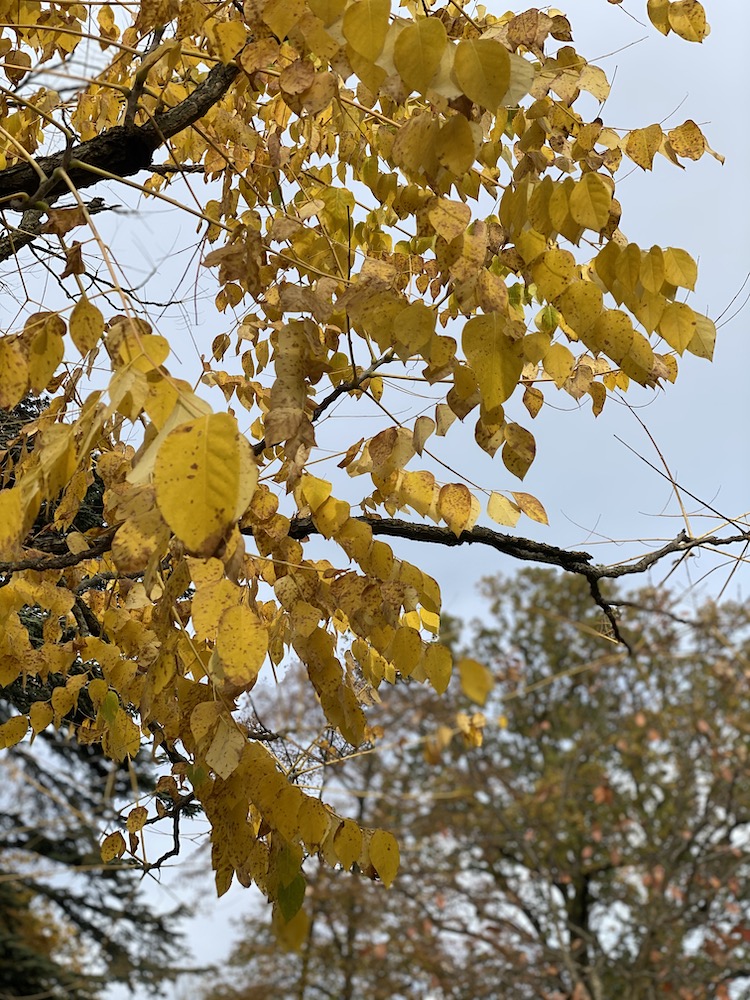November. As I started writing this post, wearing just a T-shirt on my balcony, the sun was playing hide and seek behind the clouds and yet the air was warm still, not usual for Switzerland on a November day. These times are strange indeed, the weather going from gloomy with full fog two days ago for Halloween, to warm enough to consider going for a swim in Lake Geneva.
I don’t know about you, but I have noticed my energy levels dipping over the past month. It could be the time change, the lack of sunlight, the rainy days, and probably also not going outside as often as I should (even in this pandemic). I’ve been dutifully taking immune boosting natural supplements, such as turmeric and echinacea, yet I’ve felt a bit run down for days, despite my carefully orchestrated routine.
On that note (don’t laugh!), I had a conversation with my shoulders the other day. I really suffered from tightness and tension, right there, for a four or five day period and no amount of stretching, yoga or hot baths would make much of a difference.
So, during a study coaching session with teacher Tara Mohr (she was coaching someone else but I pretended that she was coaching me), I closed my eyes and asked my upper back why it was still so tight.
To my surprise, the answer was clear, direct and to the point:
“Being this tight is how we (shoulders) are holding you up. We are scared that if we soften, you will collapse.”
Wow. That was maybe too direct. Thanks, shoulders!
Suddenly, I realised that the hidden weight of these months of pandemic were being crystallised in my back body.
“Is there anything else you want me to know?”, I asked, “While we are at it?” And I should add, this was a silent, internal dialogue.
The answer was: “We love everything you are doing, it’s great and everything, but we need to go outside more often.”
I think by “outside” my shoulders weren’t telling me to roam the streets of the city I live in so much as asking me to get out into nature.
After a couple of days with a mixture of both, or at least what I can manage to get in an urban environment, they seem happier and more relaxed.
It’s been four days now since this conversation, and three walks later, my shoulders, neck and body in general seem more at ease.
On a Zoom call the other day, I noticed that my client counterpart, all the way in Los Angeles, was tense in her neck and massaging her trapezius, trying to find some space, some ease herself.
I didn’t feel like I could tell her about my conversation with my upper back. Maybe I should have shared.
Every morning when I sit for meditation practice, now I start with noticing my breath. And eyes closed, I gently ask my body how it is doing. A daily check-in if you wish.
Some days I forget, but the more often I do it, the easier it gets to connect. Outside of the occasional shoulder conversation, having that communication with my body-mind feels helpful. In times of tension and anxiety especially.
After all, how can I serve my body-mind if I have no awareness of what is going on in that realm?
Of late, I have incorporated this tactic into a short body scan meditation. Scanning for sensations, from tingling to temperature, you can stop whenever you feel an area of tension, pain or tightness and inquire gently, while sending breath into the area in question.
And remember, you can always go inwards and ask a question. You too may be surprised by the answers you get.
If you give it a try, let me know what comes up for you.



